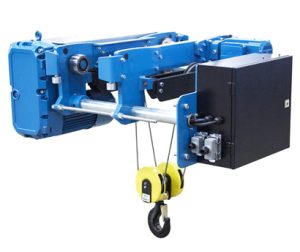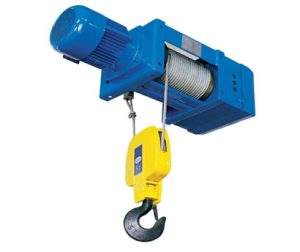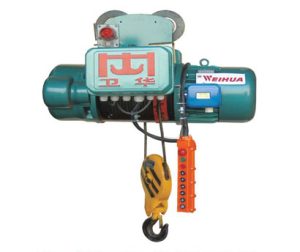
When working with lifting and pulling tasks in industrial, commercial, or even home settings, electric winches and electric hoists are two common tools that often cause confusion. While they may appear similar and sometimes even share components, their purposes, mechanisms, and safety standards differ significantly. Understanding these differences is essential for choosing the right equipment for your application.
অনলাইন চ্যাটবৈদ্যুতিক উইঞ্চ উত্তোলন: আ electric winch hoist is primarily designed for pulling heavy loads horizontally. It is commonly used in off-road vehicles, নির্মাণ সাইট, marine operations, and workshops for dragging or repositioning equipment and materials.
বৈদ্যুতিক উত্তোলন: An electric hoist is engineered for lifting and lowering loads vertically. It is typically used in factories, গুদাম, and production lines to raise heavy machinery, টুলস, or pallets safely and efficiently.

উইঞ্চ: Best for horizontal movement. Using it for vertical lifting can be dangerous due to lack of braking systems designed for gravity loads.
উত্তোলন: Designed for vertical lifting. Built with robust braking mechanisms to prevent loads from falling.
Electric Winch: Standard winches may not include fail-safe load brakes. They’re not equipped to hold a suspended load in mid-air safely over time, which makes them unsuitable for lifting.
বৈদ্যুতিক উত্তোলন: Hoists come with mechanical or electromagnetic brakes that can instantly stop and hold a load in place, even during a power failure—ensuring optimal safety.
Winches often use high-speed motors with planetary gears to maximize pulling power.
Hoists feature motors and gear sets designed to provide precise control and high torque at low speed, ensuring smooth lifting and lowering.

Electric Winches are rated for pulling force, usually measured in pounds (পাউন্ড) or kilonewtons (kN).
Electric Hoists are rated for lifting capacity, measured in kilograms (কেজি) or tons, and follow strict compliance with industrial safety standards.
| আবেদন | Use a Winch | Use a Hoist |
| Dragging a vehicle | √ | × |
| Lifting equipment to a mezzanine | × | √ |
| Repositioning a log on the ground | √ | × |
| Loading heavy machinery onto a truck | × | √ |

Technically, a winch can sometimes lift light loads vertically, but it is not recommended due to safety concerns. Using a hoist for pulling can also damage the internal components. Always use each device for its intended purpose.
Although electric winches and electric hoists might look similar, their differences are significant in terms of function, নিরাপত্তা, এবং কর্মক্ষমতা. If you need to pull horizontally, go for an electric winch. If you need to lift vertically, always choose an বৈদ্যুতিক উত্তোলন. Understanding these distinctions ensures you not only get the job done right—but also safely.
আমরা আপনার মতামত মূল্য! দয়া করে নীচের ফর্মটি সম্পূর্ণ করুন যাতে আমরা আমাদের পরিষেবাগুলি আপনার নির্দিষ্ট প্রয়োজনের জন্য তৈরি করতে পারি.

পরিবর্তনশীল গতি বৈদ্যুতিক উত্তোলন কোর পরিবর্তনশীল ফ্রিকোয়েন্সি ড্রাইভ মডিউল Infineon IGB ব্যবহার করে……

দ 500 এলবি বৈদ্যুতিক উত্তোলন হল একটি ছোট বৈদ্যুতিক উত্তোলন যা ওয়েইহুয়া গ্রুপ দ্বারা তৈরি করা হয়েছে, একজন সুপরিচিত……

মূল শক্তি & ওভারহেড বৈদ্যুতিক উত্তোলন মূল বৈশিষ্ট্য 1. Robust Construction &a……

ওয়ার্কশপ অপারেশনের জন্য একটি নির্ভরযোগ্য বৈদ্যুতিক উত্তোলন খুঁজছেন? Weihua এর বৈদ্যুতিক উত্তোলন i......
